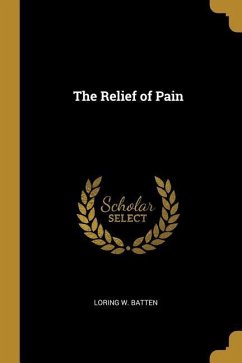VETERANS ADMINISTRATION'S MISTREATMENT OF WOUNDED VIETNAM VETERANS In my teenage years, I read a novel by H. G. Wells called The Island of Dr. Moreau. The strength of the book lay in its vivid descriptions of the eponymous doctor's shocking treatment of wild animals during his attempts, by means of vivisection, to change them into human beings. In the book, the House of Pain referred to the laboratory in which Moreau conducted his hideous experiments, without any regard for the extraordinary pain that the animals endured under his scalpel. These medical monstrosities were called the Beast Folk. In my book, the House of Pain refers to the hospitals and medical centers which the Veterans Administration owns and mismanages. The modern day Moreaus are the indifferent people that the VA employs: administrators, doctors, and medical so-called professionals. I was seriously wounded in Vietnam by three bullets and an enemy grenade. I spent thirteen months recuperating in Army hospitals; three of those months I was held firmly in place by traction bars. After I was discharged with a 60% disability rating, I suffered a lifetime of strong discomfort that culminated in severe chronic pain due largely to a sciatic nerve which had been damaged when an enemy bullet shattered my left femur. Every bit of this pain could have been eliminated if the VA medical personnel wanted to help me. None did. When I mentioned this chronic pain, the doctor who was assigned to treat me threw me out of his office - on two occasions - and on another occasion he had a tantrum, screamed in my ear and called me a dope addict, and fled the office in the middle of the examination, never to return, leaving me all alone in his office. I swear these incidents happened exactly the way I described them in this book. The hospital director supported this behavior and denied my numerous requests to be transferred to a different doctor. The chronic pain clinic prescribed over-the-counter skin cream to treat my chronic sciatic pain. When I complained that the cream did not help, I was kicked out of the clinic. Hard to believe? Welcome to VA medical (dis)service. This modern version of the House of Pain is found in the Veterans Administration's medical centers, in which veterans - chiefly those who suffer from long-time aftereffects of their time spent in Vietnam - are mistreated, misunderstood., and disregarded as yesteryear's forgotten soldiers from a misguided and forgotten war. The inhuman Beast Folk are the VA's medical staff. Most of them, anyway. I have had the misfortune to have experienced firsthand the dire machinations of the VA's apathetic medical system. This book tells it all: from my personal combat actions as a rifleman in the 25th Infantryman Division in Vietnam, to a long-time patient in various Army hospitals, through a lifetime of anguish as a disabled civilian, to my ultimate confrontation with today's Veterans Administration, whose modern banner reads like a quote from W. C. Fields, "Go away kid, ya bother me." Here is my story about modern VA medical mistreatment. This is the kind of treatment that today's soldiers can expect to receive if they are ever wounded in combat. Caveat emptor, as the Romans used to say. Let the buyer beware . . . if you enlist.
Hinweis: Dieser Artikel kann nur an eine deutsche Lieferadresse ausgeliefert werden.
Hinweis: Dieser Artikel kann nur an eine deutsche Lieferadresse ausgeliefert werden.





![The Mystery Of Pain [by J. Hinton] The Mystery Of Pain [by J. Hinton]](https://bilder.buecher.de/produkte/71/71716/71716817m.jpg)


